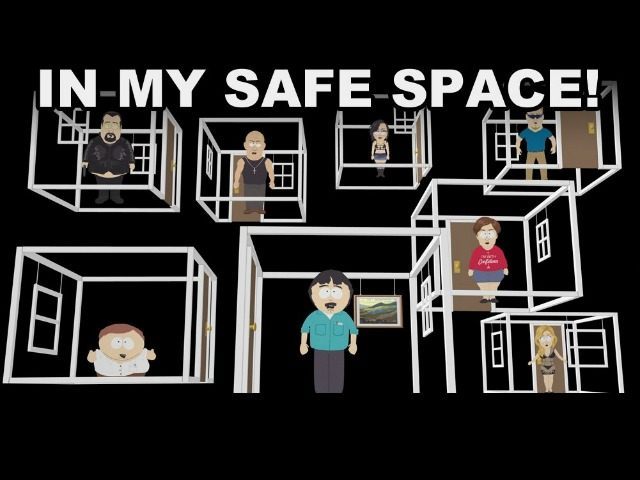The so-called “safe space” was one of the defining issues of free speech at universities in 2015, as its very concept attracted global ridicule. However, its coup de grâce is now well under way.
“Safe space” is a policy to make everything on university campuses inclusive. How is it achieved? By excluding unwanted people, facts, or ideas.
While no one was watching, power-hungry student union officers snuck behind everyone’s back and inscribed “safe space” policies into university rules designed to specifically censor speech and arguments that fail to fit their progressive agenda.
However, 2015 was the year when the “safe space” came to light, as it was when campus crazies began to try out their beloved new policy, designed to ensure their fellow students’ “safety.”
“Safe space” policies were implemented to ban the likes of veteran feminist Germaine Greer, elected UKIP MP Douglas Carswell, and even a man who fought against ISIS from giving talks at top British universities.
Feminists at Bristol University even tried to ban Breitbart Tech editor Milo Yiannopoulos from giving a talk about gender politics, although the plan backfired when a Bristol Post poll revealed 92% of people supported Yiannopoulos’s imminent visit. Furthermore the champion of the “safe space violation” campaign, Francesca Collins, bombed out of an interview while interrogated about the ins and outs of the safe space policy.
https://www.youtube.com/watch?v=4OKTKaSh0pY
Yet despite successful bans imposed on those who don’t fit the desired narrative of progressive social justice, the publicity and outcry surrounding “safe spaces” has damaged the progressive dream immeasurably.
“Safe spaces” are now subject to global ridicule, and the cracks are beginning to show. The free speech magazine Spiked recently revealed the epidemic of campus censorship in its Free Speech University Rankings, which concluded that 90% of British universities censor speech, a 10% increase from 80% in 2015.
The findings have caused significant embarrassment to many universities, especially those given a red traffic light, which indicates that the institution has “banned and actively censored ideas on campus.”
It is this level of pressure that is usually exerted by social justice warriors to influence events that do not fit their desired narrative. When a sense of false outrage is created, they tend to get results. Examples include the petition that led to Nobel Prize winning scientist Tim Hunt losing his job at UCL following his ‘sexist’ comments, the outcry that led to International Men’s Day being cancelled at York University, and a petition to ban Donald Trump from the UK led to the issue being debated in British parliament.
Nowadays, outrage is an effective tool, and people are genuinely outraged at safe spaces. This is why I’ll soon be putting forward a motion at Bristol University’s SU for a university-wide referendum on whether students actually want safe spaces.
It is likely to fall at the first hurdle, as few rational minded students actually tend to participate in student democracy and are consistently outnumbered by progressives who are more than happy to vote on motions such as banning The Sun newspaper, boycotting Israeli goods and produce, or, of course, the introduction of safe spaces. I’m looking forward to the excuses that opposition presents.
What we all want to know is whether these “democratically elected” safe spaces, that our feminist officer above refers to, are that democratic after all. As the renowned scientist Richard Dawkins said, “If you need a safe space, leave, go home, hug your teddy & suck your thumb until ready for university.”
You can follow Ben Kew on Twitter at @ben_kew or email him at ben@yiannopoulos.net

COMMENTS
Please let us know if you're having issues with commenting.